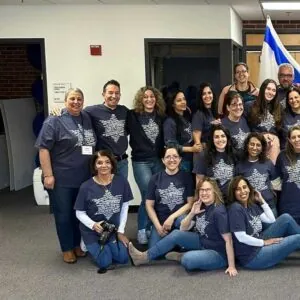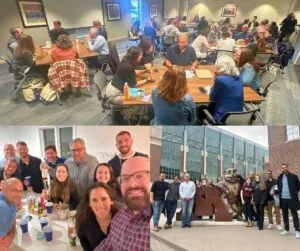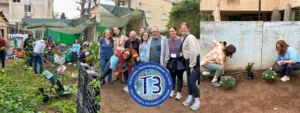Between the pandemic, the political uprisings, and the general state of uncertainty that has defined 2020, many businesses and organizations were forced to rethink every aspect of their operation. But according to David Jordan Harris, executive director of Rimon: The Minnesota Jewish Arts Council, 2020 didn’t sidetrack Rimon—it focused the organization.
“It made us think, what is our job? How can we help the artists who have been impacted? How can we help the community who is looking for direction? How can we lift up institutions that are buckling at the knees? In all of these areas Rimon is just trying to play its small role.”
In times like these, Harris says, the arts shouldn’t be overlooked. After the murder of George Floyd in particular, Minneapolis essentially turned into a canvas.
“We will look back on these images when we try to define what this moment was about. We will look back at the music, in the same way we look back to Bob Dylan and Bruce Springsteen. These are the people who shape our understanding of the time we are living through.”
With that in mind, Harris and Rimon moved full steam ahead with virtual programming and other creative ways to keep their community of artists connected. As anyone who has had to “pivot to virtual” this year knows, that pivot is more complicated than it sounds. Rimon struggled with not just trying to recreate an in-person arts experience, but how to create a different pacing and focus than one usually experiences online.
“I’ve never been busier,” laughs Harris. “That took me by surprise.”
Since March, Rimon has opened a new round of Project Support grants (the organization has given out $213,000 to 107 recipients since 2005!), continued their popular Salon Series by shifting to an online format, partnered with MJF’s Women Repair the World series to showcase the talents of three local female artists, is about to roll out an interactive online Minnesota Jewish artists directory, and is taking submissions for its latest Keren Or contest for teen artists.
“What does this moment ask from us?” wonders Harris. “I believe it asks for experimentation and creativity.”







